Post Event Brief
The second technical workshop of the Singapore Hybrid-Integrated Next-Generation μ-Electronics (SHINE) centre was held on 1-2 March 2023 at Block E7 in the NUS College of Design and Engineering Campus. The event was a 2-day seminar that included a series of invited talks from both academia and industries, as well as a workshop to report on research work by SHINE PIs and researchers of the four research thrusts E7 in the NUS College of Design and Engineering Campus.
The seminar focused on advancing novel material discoveries for future semiconductor technology while fostering innovation and industrial collaboration. Open to the public, professors, staff, researchers, and industry collaborators, the first day of the event drew in more than 150 participants.
The welcome address was given by Prof Aaron Thean, Director of SHINE, who outlined the motivation behind establishing the SHINE centre and its belief in research strategies specific to R&D and the research ecosystem.
Ten esteemed speakers presented on the first day of the event, including Mr Chris Sim, Director of Packaging Development Engineering of Micron Semiconductor Inc., Dr Suresh Venkatesan, CEO of POET Technologies, Prof Takao Someya of the University of Tokyo, Dr Walter Schwarzenbach, Technology Manager of SOITEC, Dr Desmond Lim, Deputy CEO (Technology) of DSO National Laboratories, Glenn Vandevoorde, CEO of iCana, Prof Aaron Thean of the National University of Singapore, Prof Chen Xiaodong of Nanyang Technological University, Dr Surya Bhattacharya Director, System-in-Package of A*STAR IME, and Prof Alberto Sangiovanni-Vincentelli University of California, Berkeley.
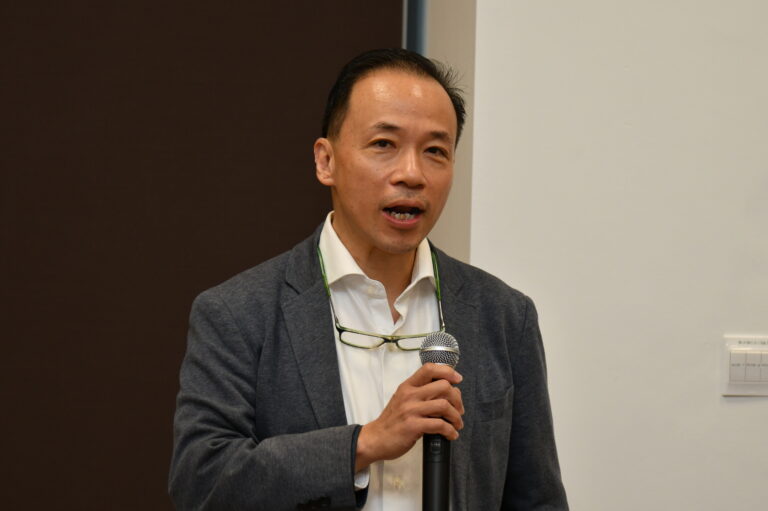
The opening keynote address by Mr Chris Sim discussed the challenges and changes necessary to enable growth and expansion in the industry over the upcoming decade. He emphasized the essential supporting elements and leading approaches required for such enablement. He also highlighted the projects on digital twins SHINE is working on with industries like Micron and AMD.
Dr Suresh Venkatesan’s talk highlighted the growth in photonics-based technologies and the need for an integration solution to “semiconductorize” photonics using wafer-level semiconductor processing. He discussed the key challenges in photonics and established hybrid integration as the most cost-effective deployable solution with its ability to scale and adaptability.
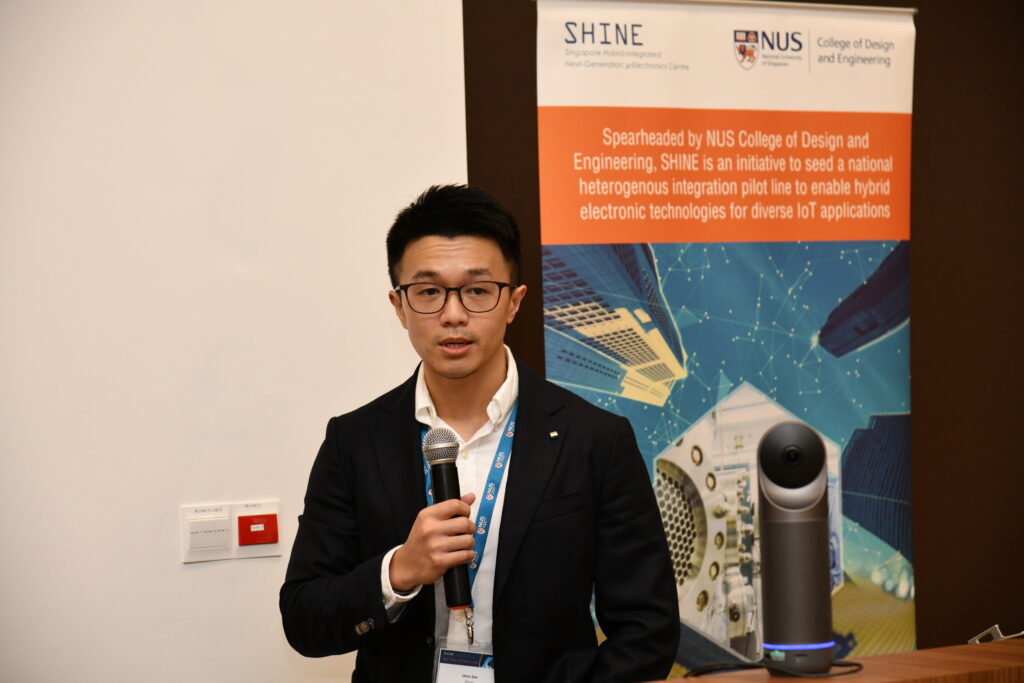
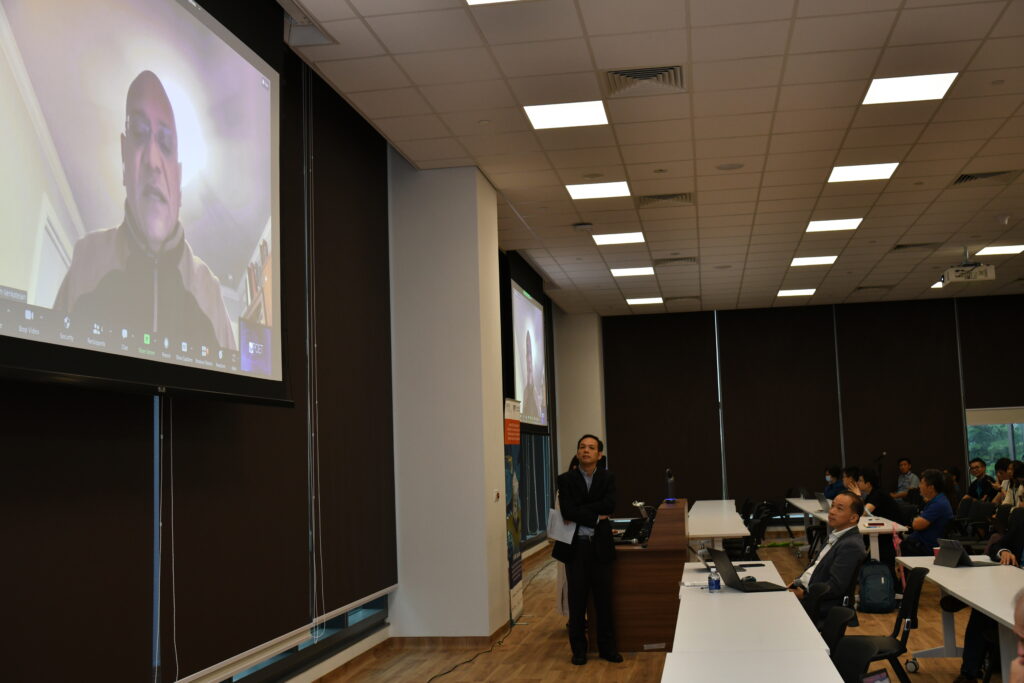
Prof Takao Someya discussed recent advancements in nanomesh electrodes that can be applied directly onto the skin for smart apparel, sensor patch and skin electronics.
Dr Walter Schwarzenbach introduced SmartSiCTM, a solution meeting requirements for power devices, including high-quality and ultra-low resistivity materials.
Dr Desmond Lim shared a case study of miniaturization and the first locally developed synthetic aperture radar (SAR) Microsatellite, NeuSAR, which he said had been a success.
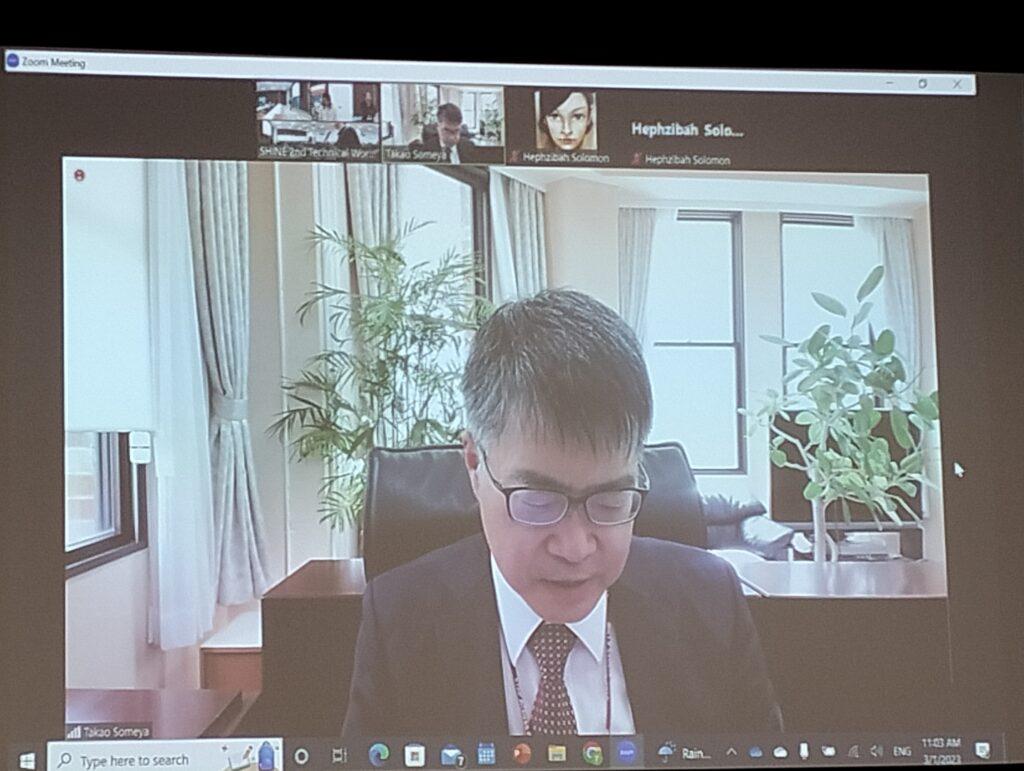
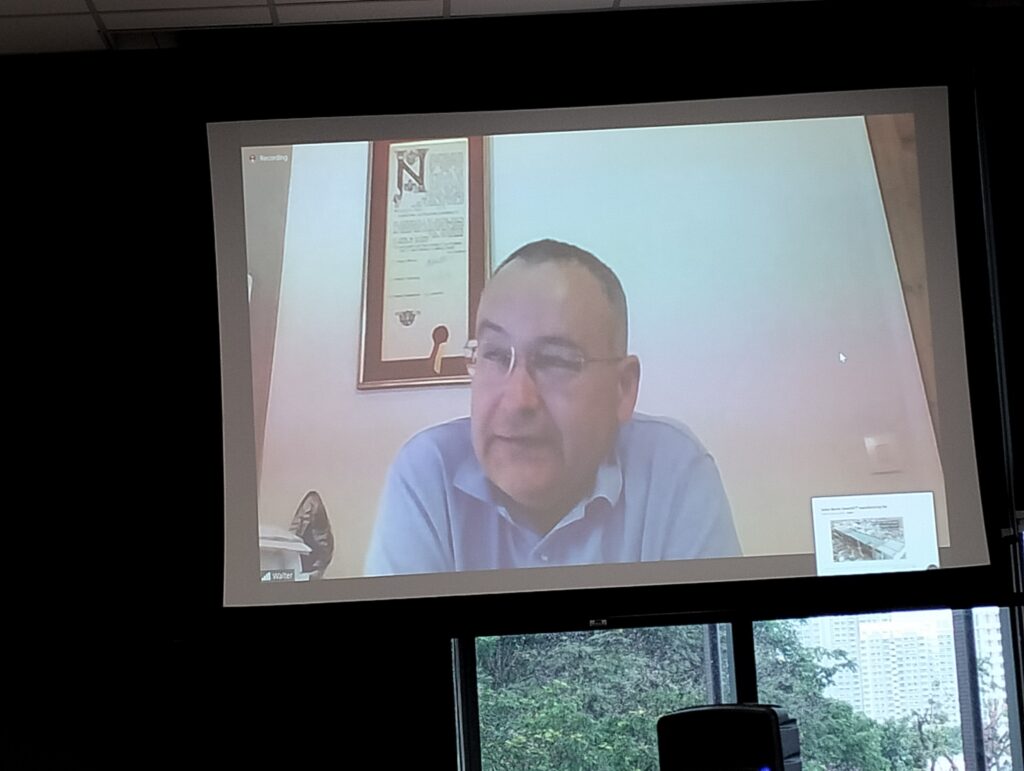
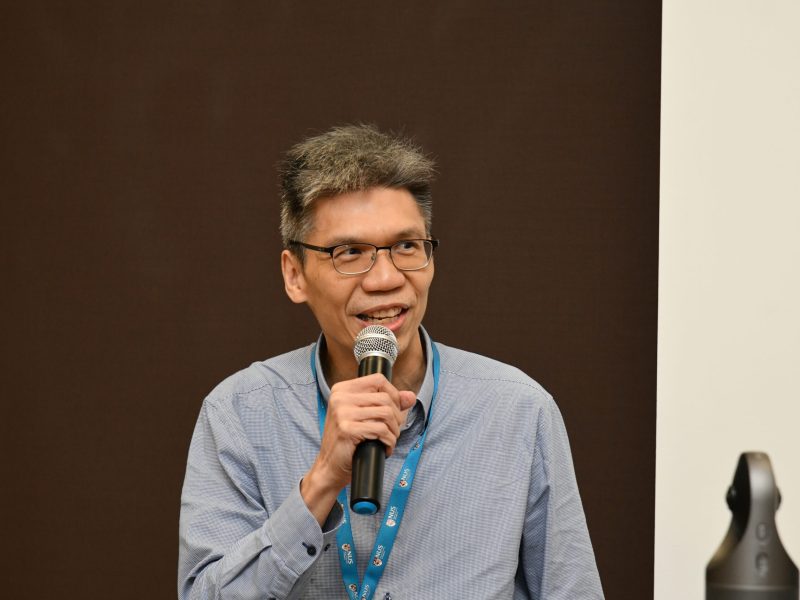
Glenn Vandevoorde followed on starting his talk by introducing iCana, an IC design start-up, and discussing the challenges in RFIC design, including the need for higher power, wider bandwidth, and better efficiency for 5G infrastructure. He emphasized iCana’s focus on developing a complete range of products for 5G infrastructure for FR1 and FR2, and its roadmap for addressing these challenges with novel devices, transcending traditional design trade-offs. Glenn also highlighted the importance of a world-class design team and branding with a deepened understanding of three key challenges, funding, supply chain, and people, and five possible means to boost semiconductor start-ups in Singapore.
Prof Aaron Thean then discussed the increasing emphasis on material innovations, which offer new opportunities, and the motivation behind SHINE, which has a strategy and approaches well-suited for value-adding Singapore’s industry landscape. He emphasized the continuation of circuit density scaling by enabling Design Technology Co-optimization (DTCO) with new computing systems that drive the co-integration of logic and memory. He shared the roadmap on flexible/soft electronics development with increased applications scaling towards diverse sensing power sources, slower but more sophisticated ICs, and hybrid-integrated electronics and heterogeneous integration with the convergence of material innovations. Converging these approaches, SHINE contributes to smart surface-aware remote-sensing skin.
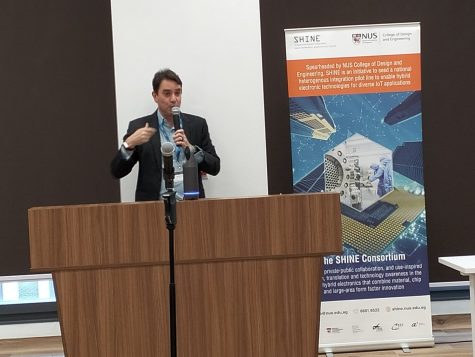
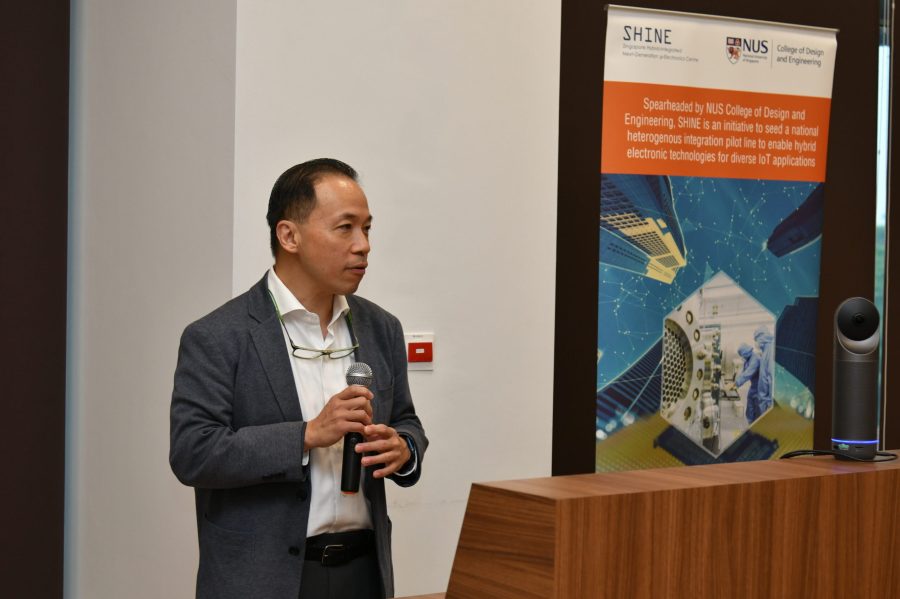
Prof Chen Xiaodong focused on the interconnection and packaging of soft electronics, which are flexible, stretchable, and biocompatible designs, bringing significant changes in electronic devices such as wearable tech, medical devices, and IoT. He shared the technology roadmap of stretchable electronics and discussed the materials, processes, and design strategies for modular connection, leading to a universal interface that can connect soft, rigid, and encapsulation modules efficiently to form reliable, robust, and highly flexible devices. Prof Chen also delved into challenges and opportunities in soft electronics packaging, such as ensuring environmental stability, mechanical durability, and electrical performance while integrating passive and active components.
Dr Bhattacharya presented on System-In-Package (SiP) enabled by heterogeneous integration, allowing the semiconductor industry to create advanced SiP solutions that optimize power-performance-form factor-cost while addressing diverse market requirements for 5G, AI, and HPC market applications. He provided an overview of the challenges, such as thermal cooling, and solutions for designing and manufacturing heterogeneous integrated systems in a package while including developed SiP solutions with versatile platforms: embedded HD FOWLP, 2.5D interposer, and 3D integrated chiplet systems that demonstrated wafer level heterogeneous integration of chiplets for 5G/AI/HPC applications.
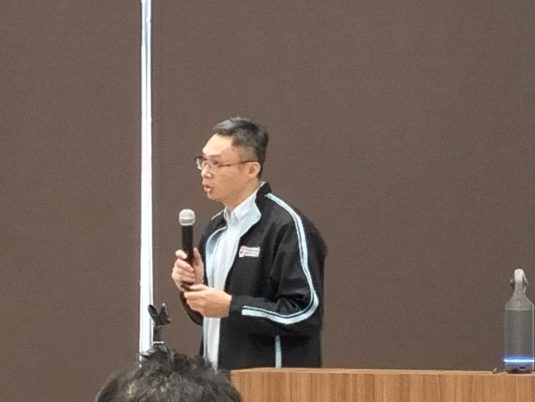
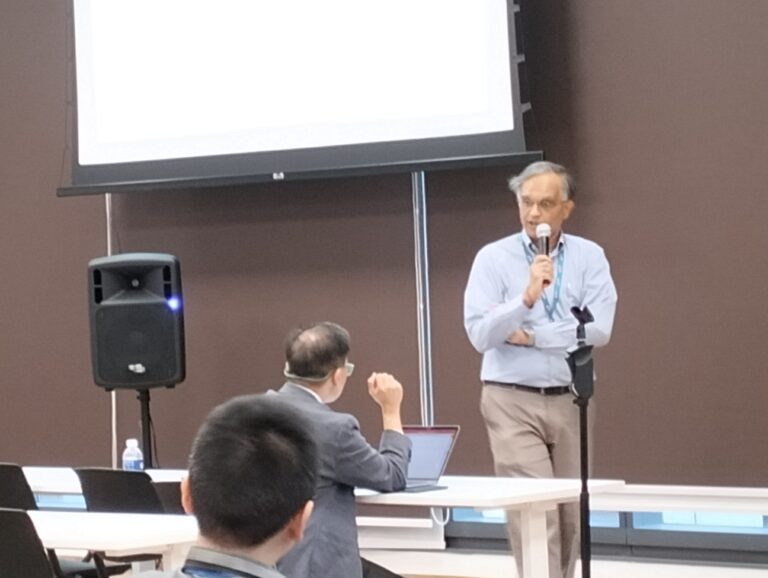
Prof Alberto’s closing keynote discussed the challenges in designing semiconductors for the lack of designers and inherent issues in product development involving billions of transistors, especially with chiplets intensifying complexities in the design process. He highlighted the need for a holistic consideration of sensors, actuators, communication, and computing elements for integrated system design, with critical decisions on integrated versus multi-chip solutions. With an increasing interest in AI components among computing elements, he also addressed the crucial trade-offs between analog and digital solutions for AI chips while evaluating the general directions of integrated system design such as module-level 3D-IC partitioning and AI computing blocs.
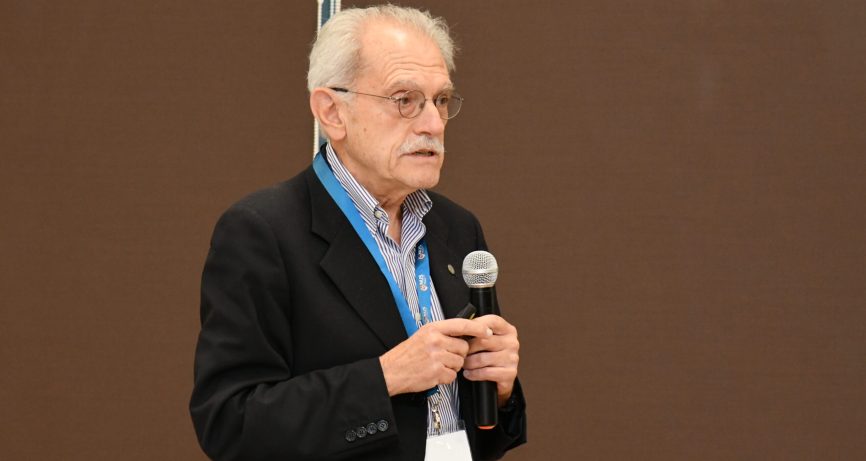
We were thrilled to see experts from academia and industry generously sharing their research inputs and outcomes, and exchanging innovative ideas for the advancement of the semiconductor industry during the 2-day SHINE technical seminar and workshop. The first day of the event successfully concluded at 5 pm.
The second day of the event, which was restricted to SHINE consortium members, focused on a workshop and saw about 90 attendees. Prof Lim, Programme Director of SHINE, recapped the program’s overview and updated the progress of the program since the establishment of the SHINE center on 30 March 2021. A total of nine SHINE PIs and fellow senior researchers shared their ideas and findings on the four thrusts of research: Functional Materials, Processing and Sensors; Elastomeric Composites for Thermal Interface Materials; Design and Development of the Chiplet-based Heterogeneous Integration on Silicon Interposer for an RF Transceiver; Thermal Management Solution for Flexible Antenna System; Design of Flexible Phased Arrays in SHINE; A Design Methodology for Chiplets: Towards on-, over-the- and across-Chiplet Specialization for High-Mix Low-Volume Heterogeneous Systems; and Additive Manufacturing of Nanomaterial for Thermal Management of Integrated Microelectronics.
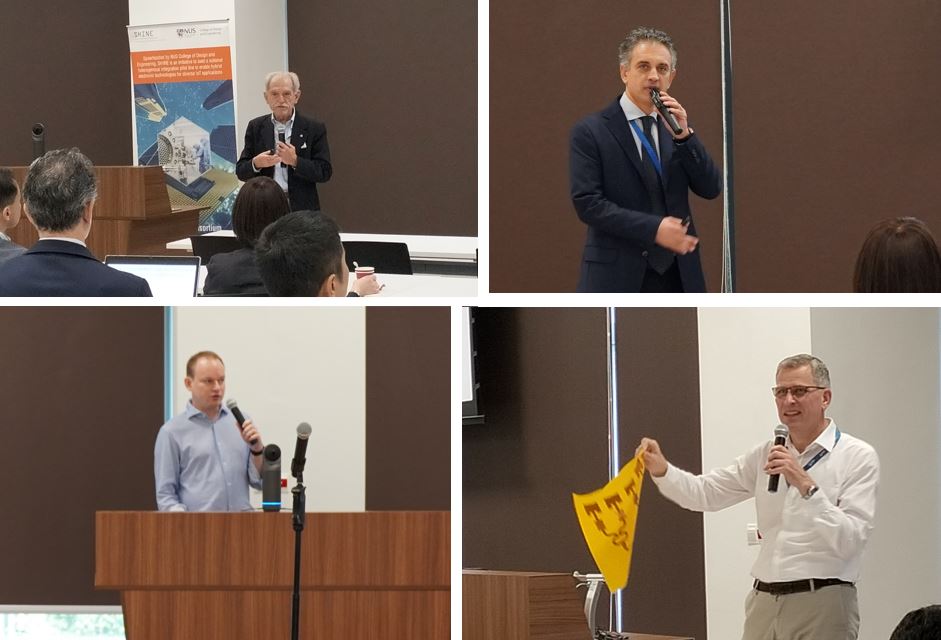
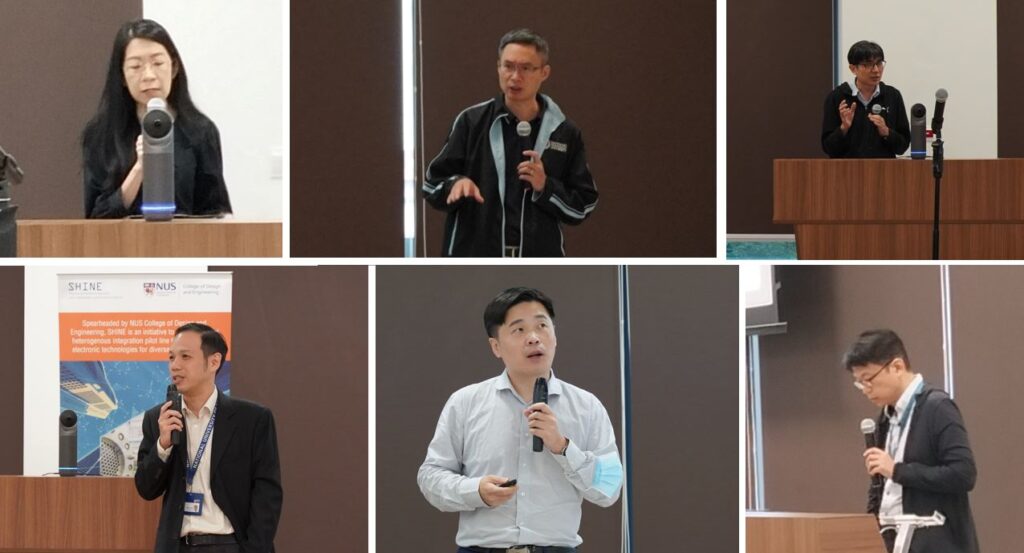
The workshop was dynamic and interactive, with participants actively raising questions and engaging in productive discussions. The workshop concluded smoothly at 5 pm, leaving everyone with new insights and ideas to take forward in their work.
Overall, the 2-day SHINE technical seminar and workshop was a success, and we invite everyone to stay tuned for more updates on SHINE’s cutting-edge research in hybrid-integrated next-generation μ-electronics.

For speaker biography and event e-booklet, click here.
- Home
- SHINE 2nd Technical Workshop
Singapore Hybrid-Integrated Next-Generation μ-Electronics (SHINE) Centre
- Block E6, #E6-5-3, 5 Engineering Drive 1, Singapore 117608
- +65 6601 8522
- shine@nus.edu.sg

